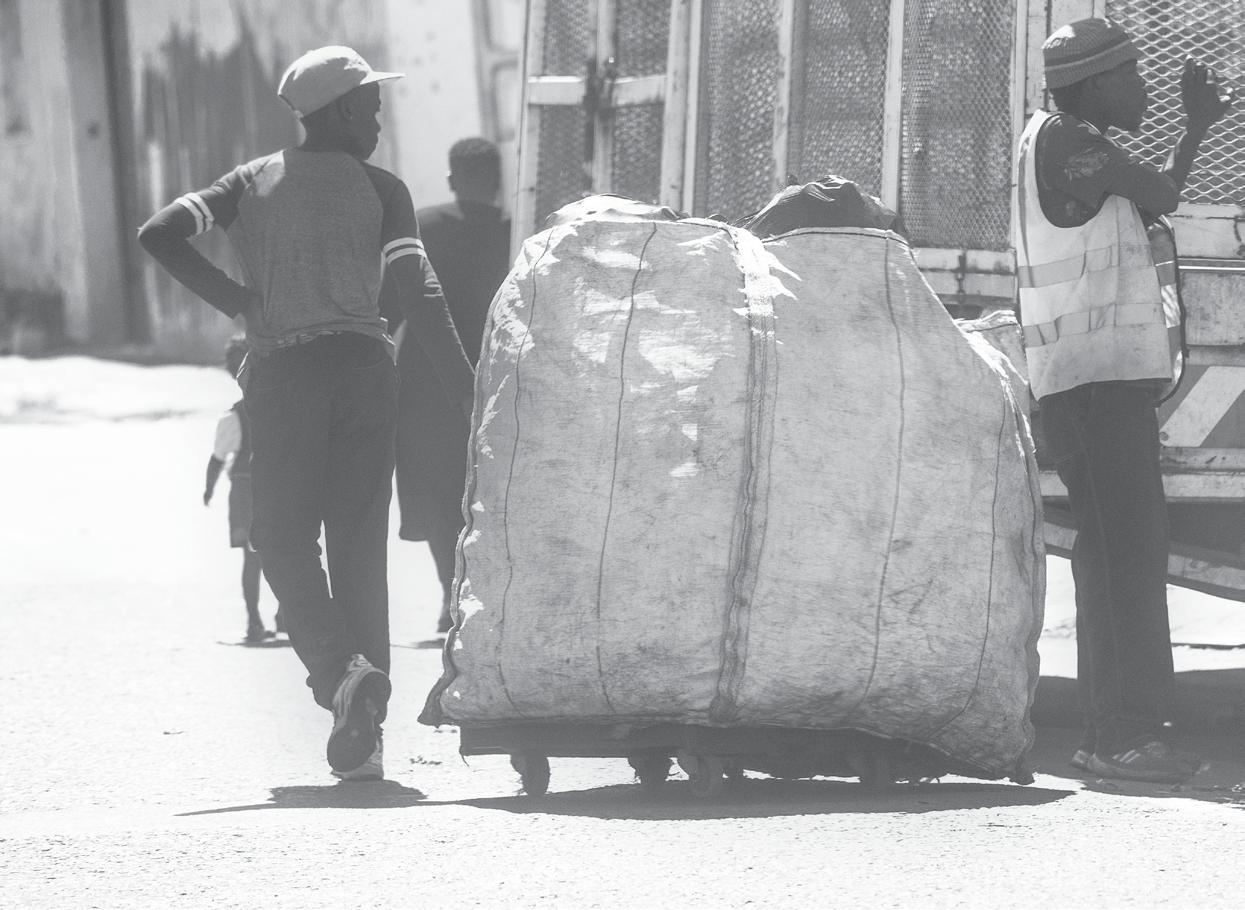CIRCULAR ECONOMY
Landfill closure and recycling Many municipalities, especially the smaller ones, do not have any form of engineered landfill or formal waste collection and disposal processes in place. Equipped with the necessar y knowledge base and financial resources, however, there are viable oppor tunities to transition to a circular economy. Reon Pienaar, professional engineer at JPCE (Pty) Ltd, discusses the possibilities.
Construction of Cell 4 at the Karwyderskraal regional landfill site
34
M AY 2 0 2 0
|
ReSource
D
eveloping a practical waste diversion strategy is complex and hinges on key factors such as ongoing education and access to funding for infrastructure development. Landfills that are often little more than uncontrolled dump sites don’t incur operational costs; however, the expense of closing them is often substantial. For example, a landfill site for a small town servicing several thousand people can cost R5 million to R10 million to rehabilitate. For a small municipality facing pressing infrastructure priorities like roads and water and sanitation upgrades and maintenance, landfill closure is going to be one of the last items on the agenda and is very rarely done. “Landfills will be part of the South African landscape for many years to come,” says Pienaar. “The goal, though, is to progressively reduce their number and make sure they’re all environmentally compliant. Essentially, we must manage landfills as part of an integrated waste management solution rather than the primary solution.” JPCE is a specialised waste management consulting engineering firm whose work includes the engineering of landfill closures, as well as the compilation of Integrated Waste Management Plans (IWMPs). In accordance with the National Environmental Management: Waste Act (No. 59 of 2008), municipalities are required to develop regular IWMPs to incorporate into their Integrated Development Plans. JPCE also assists municipalities with obtaining waste licences for the closure of their smaller landfill facilities and helping them establish materials recovery facilities (MRFs), public waste drop-off facilities, solid waste transfer stations, composting facilities, and other wasterelated infrastructure.
A regional strategy From an industry perspective, the Department of Environment, Forestry and Fisheries (DEFF) supports the move towards closing small municipal dump sites and shifting to a regional approach. There are already various working examples nationally. Within this scenario, MRFs in smaller towns will focus on separating recyclable waste at source and transporting the balance via transfer stations for disposal at engineered regional landfill facilities. Working predominantly in the Western Cape, JPCE has successfully worked with several district and local municipalities to re-engineer their landfill operations in this fashion. For Overberg District Municipality, headquartered in Bredasdorp,
JCPE has assisted in further developing the Karwyderskraal regional landfill site. This landfill services other local municipalities in the district, which currently include Theewaterskloof and Overstrand. Overberg has a successful composting facility at the landfill, processing garden and some fruit waste. Meanwhile, in towns like Gansbaai and Hermanus, MRFs recover recyclable materials, with the remaining waste sent to Karwyderskraal. “The first prize to achieve the highest rate of recycling is clean separation at source,” explains Pienaar. “Dirty waste, whether paper or recyclable plastics, has a reduced commercial value, as there’s the added cost of removing contaminants like dirt and food residues. “Across the board, we work with municipal waste managers to develop an implementation strategy that will help stimulate the local waste economy,” he continues. “As part of this process, we encourage municipalities to engage with private industry at local waste forums. As with any business, determining commercial viability is a critical starting point, and that depends on the market and potential buyers for recyclable materials.” JPCE is currently working on municipal organic waste studies to determine the optimum economies of scale for the treatment of this waste, in order to divert it from landfill. The proposed norms and standards for the development of composting facilities will greatly facilitate the process for municipalities. These norms and standards have been in draft form for some time and currently the development of a composting facility still requires an environmental authorisation and waste licence application, which can be a costly and time-consuming exercise. To develop an MRF is much easier. In October 2017, the DEFF removed the environmental authorisation and licensing requirement from the list of waste management activities that have, or are likely to have, a detrimental effect on the environment. Although an MRF still needs to be registered and operated according to the norms and standards set by the DEFF, it no longer requires a waste management licence and environmental authorisation process.
Removing landfills In some cases, landfills can be completely removed and the ground rehabilitated to make way for urban development. This process depends largely on the volumes of waste involved and the costs of excavations, testing and transport, etc. A case in point is a project recently completed by JPCE for the town of Riebeeck West. During the removal



















